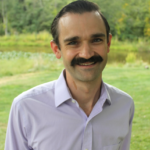
From Forensics to Outpatient: A Collaborative and Humanistic Approach to High Risk Cases
Information
Recorded
-
-
Location
-
Southern Hemisphere IV
1500 Epcot Resorts Boulevard
Lake Buena Vista, FL 32830
Learning Objectives
Participants will be able to:
-
Name 3-4 techniques for challenging traditional therapy.
-
Give 2-3 examples of strategies for building and collaborating with teams across disciplines.
-
Identify 2-3 effective methods for training and supervising paraprofessionals to enhance team effectiveness.
-
Summarize evidence-based techniques for fostering client connection and improve therapy outcomes using Recovery-Oriented Cognitive Therapy (CT-R).
Description
Join us to explore a collaborative approach to “high risk cases” and Recovery-Oriented Cognitive Therapy (CT-R). Discussion will feature case examples from both forensic and outpatient settings, providing practical insights and evidence-based strategies for enhancing therapeutic practice. Attendees will leave with a deeper understanding of how to integrate multidisciplinary teams and innovative approaches to improve client outcomes, reinforcing positive beliefs and behaviors to support clients in achieving meaningful life improvements and fostering long-term recovery. Enhance your practice with cutting-edge techniques from this revolutionary model and see tangible results in your therapy outcomes
CT-R is an evidence-based practice that provides concrete, actionable steps to promote recovery, wellness, and resiliency. CT-R is a transdiagnostic, “total person” approach that can be applied across disorders, presenting problems, and developmental stages (childhood to older adult). CT-R is flexible, practical, highly collaborative, person-centered, strength-based, and focuses on enhancing social determinants of health. It can be especially useful for individuals who have a history of feeling disconnected from, and distrustful of, providers.
Target Audience
- Counselor
- Marriage & Family Therapist
- Nurses
- Physicians
- Psychologist
- Social Worker
- Substance Use Disorder Professionals
Presenters

Shani Hazan is a certified Mindful Outdoor Guide (KMOG), a certified Breathwork teacher, a Positive Psychology Practitioner, and a Coach. Her expertise in these fields has allowed her to deepen her ability to support clients emotionally and mentally. With six years of experience working in the field, she has developed a reputation as a compassionate and creative healer. She has traveled with clients, developing innovative approaches to aid in their recovery, and her life is now a testament to the power of transformation and resilience.
Shani Hazan’s journey has shown her that sharing her most vulnerable life experiences is a profound way to heal and empower others. She believes every challenge she faced was meant to lead her to this moment, where she helps others rise above their struggles.
Born and raised in Israel, Shani’s path took her across the globe, with destiny guiding her to New York City, where she sought to achieve greater dreams. Her early career in the entertainment industry saw her thrive as an actress, singer, model, and artist, and she even served in the Israeli army. At just nineteen, Shani was crowned Miss Israel in 2012, propelling her to international recognition. She traveled the world, becoming a well-known figure in the industry. But with fame came many personal battles.
Behind the spotlight, Shani faced some of life’s most painful challenges. From childhood sexual abuse to physical abuse, tumultuous family relationships, eating disorders, ADHD, depression, anxiety, and addiction—her life was a whirlwind of highs and devastating lows. She began using substances at the age of nine, and as her career soared, so did her addiction. Moving to NYC was her attempt to escape the chaos of her past, but instead, she hit rock bottom. She lost everything—her identity, her home, and her will to live. Addiction controlled her life, and her mental health was in shambles.
After a period of sleeping on couches and doing whatever work she could find, Shani finally found a small room in Brooklyn, offering a glimpse of stability. It was during this time that she stumbled upon an opportunity to work at a sober living home for women. What started as a job soon became her life’s calling. She became a coach and 24/7 sober companion, dedicated to helping others reclaim their lives, just as she had.
Shani’s story is one of redemption, and she uses her own recovery to inspire and guide others on their path to healing.

Joe’s journey to becoming a psychologist was not a linear one. Prior to becoming a psychologist, he worked as a nurse. Here he saw firsthand the importance and healing nature of empathy, compassion, trust, open and honest communication, and placing client’s wellness at the forefront of care. As a psychologist he continues to live these values in his day-to-day practice. Joe received his doctorate in psychology from the Institute of Graduate Clinical Psychology at Widener University with a concentration in Cognitive Behavioral Therapy/Acceptance & Commitment Therapy (CBT/ACT) and Health Psychology. He completed his postdoctoral fellowship at the Aaron T. Beck Psychopathology Research Center within the University of Pennsylvania. Joe has advanced training in Cognitive Behavioral Therapy (CBT), Recovery- Oriented Cognitive Therapy (CT-R), and Acceptance and Commitment Therapy (ACT). He worked with and received supervision from Dr. Aaron Beck, one of the creators of CBT and CT-R. He has worked with individuals with serious mental health challenges and provided training and consultation to agencies implementing CT-R. He continues to provide training and consultation as a faculty member at The Beck Institute for Cognitive Behavior Therapy. Joe also teaches a graduate level course, Cognitive-Behavioral Strategies in Healthcare, for nurse practitioner students at the University of Pennsylvania School of Nursing. He is also a Nationally Registered Emergency Medical Technician (EMT). When it comes to psychotherapy, Joe employs an action-oriented, pragmatic, strengths-based approach – he believes the best therapy comes through collaboration between equals. He believes that not everyone will benefit from “cookie cutter” therapy and places importance in identifying what is workable for each of his clients even if it might not look like “standard” therapy.

Prior to becoming a psychologist Stella worked as a volunteer with incarcerated women in maximum security prison and victims of domestic violence and their children in a location-protected setting. It was through these experiences that she became inspired to look more closely at our mental health care system and the manner in which mental health care services are delivered especially to those who are underserved and marginalized.
She received her doctoral training at Ferkauf Graduate School of Psychology at Albert Einstein Medical School. Training extensively in multiple modalities of psychotherapy and neuropsychological assessment, she completed the capstone of her clinical training at Manhattan Psychiatric Center, followed by post-doctoral training at Kirby Forensic Psychiatric Center, where she continued to work as a treatment team leader, acute care psychologist, and forensic evaluator.
In treatment, Stella works collaboratively with her patients and is dedicated to providing a safe space for people to work through their challenges with her support and guidance. She employs a integrative framework pulling from several therapeutic modalities including, Cognitive Behavior Therapy (CBT), Dialectical Behavior Therapy (DBT), and Psychodynamic Psychotherapy.
Stella’s style is direct and supportive, she believes that honesty and transparency are inherently therapeutic and that sometimes the best therapy outcomes are from treatment that does not need to look and feel like treatment. She truly enjoys the creativity of therapy, and customizing treatment by integrating different modalities to honor the uniqueness of each of her patients, and ultimately for therapy to be effective for them.

Paul Grant, PhD, is Director of Research, Innovation, and Practice at the Beck Institute Center for Recovery-Oriented Cognitive Therapy (CT-R). With Aaron T. Beck, he originated CT-R and conducted foundational research to validate it. He is a recipient of awards from the National Alliance on Mental Illness, the University of Medicine and Dentistry of New Jersey, and the Association for Behavioral and Cognitive Therapies. Dr. Grant developed group, family, and milieu CT-R approaches, and directs large projects implementing CT-R nationally and internationally. He has developed innovative implementation tools and is involved in researching positive beliefs and teamwide culture change as mediators of successful CT-R outcomes. He is the co-author of Recovery-Oriented Cognitive Therapy for Serious Mental Health Conditions and Schizophrenia: Cognitive Theory, Research, and Therapy.

Shelby Arnold, PhD, is a Staff Psychologist at Beck Institute Center for Cognitive Therapy. She received her PhD in Clinical Psychology with a concentration in Forensic Psychology from Drexel University. Dr. Arnold has worked in a variety of forensic settings, including forensic assessment clinics, inpatient forensic hospitals, community diversion programs/problem-solving courts, and city-based forensic policy teams. She currently collaborates with a diverse set of forensic partners across the spectrum of justice-involvement to implement CT-R in their setting.
Her research interests include evidence-based practices for justice-involved individuals and community diversion and other alternatives to standard prosecution, particularly for individuals with serious mental health challenges. She has published numerous peer-reviewed articles and book chapters on these topics, and is the co-author of Problem-Solving Courts and the Criminal Justice System, published by Oxford University Press.
Financially Sponsored By
- The Global Exchange Conference - Exchange Events